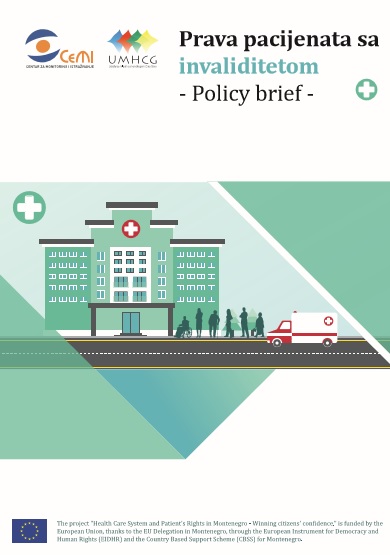The right to healthcare and a standard of living conducive to health preservation are fundamental human rights inseparable from human dignity. Thus, one of the paramount responsibilities of every state is to ensure the provision of adequate, efficient, and affordable healthcare and health insurance. The extent of availability and accessibility of the healthcare system to various marginalized groups, along with its capacity to address their specific needs, reflects a country's level of development and its dedication to upholding human dignity and rights.
For individuals with disabilities (PWDs), the realization of the right to healthcare and health insurance holds particular significance. This is crucial not only for preventing the progression of impairments and maintaining satisfactory health levels but also for enabling the fulfillment of other rights linked to these, such as personal mobility, rehabilitation, and habilitation. However, the long-standing application of the biomedical and functional approach to disability in many countries, including Montenegro, has led to an inadequate response from the healthcare system to the needs and rights of PWDs. There persists a prevailing belief in Montenegro, particularly among healthcare professionals, that the primary objective for PWDs should be complete, or at least partial, recovery. Given the impracticality of this objective, the healthcare system often appears to relinquish responsibility for PWDs, deeming them as "hopeless" or "incurable cases."
With few exceptions, such attitudes within Montenegro's healthcare system have led PWDs and their families to adopt similar perspectives regarding the health status of this population. Recognizing the prevailing challenges in realizing the right to healthcare and health insurance for PWDs in Montenegro, we undertook an analysis of the legal framework within the framework of a partnership project with the Centre for Monitoring and Research (CeMI) titled "Healthcare System and Patients' Rights in Montenegro - Building Citizen Trust." This project, financed by the Delegation of the European Union in Montenegro, involved combining insights from earlier research with PWDs and their family members, conducted through six focus groups in five Montenegrin cities, with a total participation of 61 individuals.
This Policy Brief encapsulates the findings, analyses, and research outcomes, serving as an advocacy tool to drive improvements in this domain.
